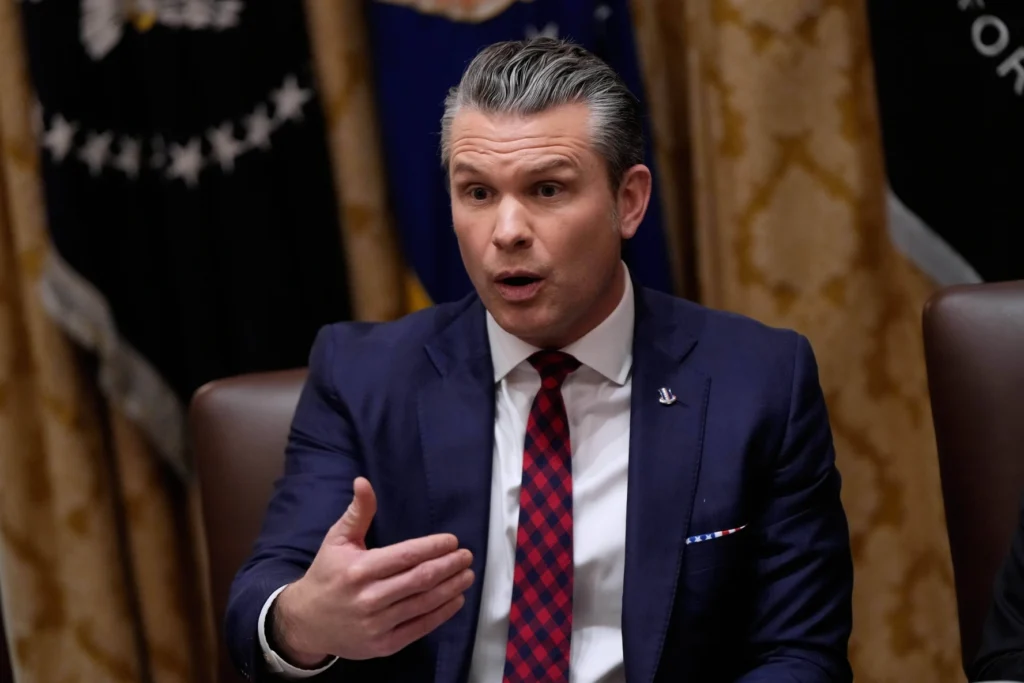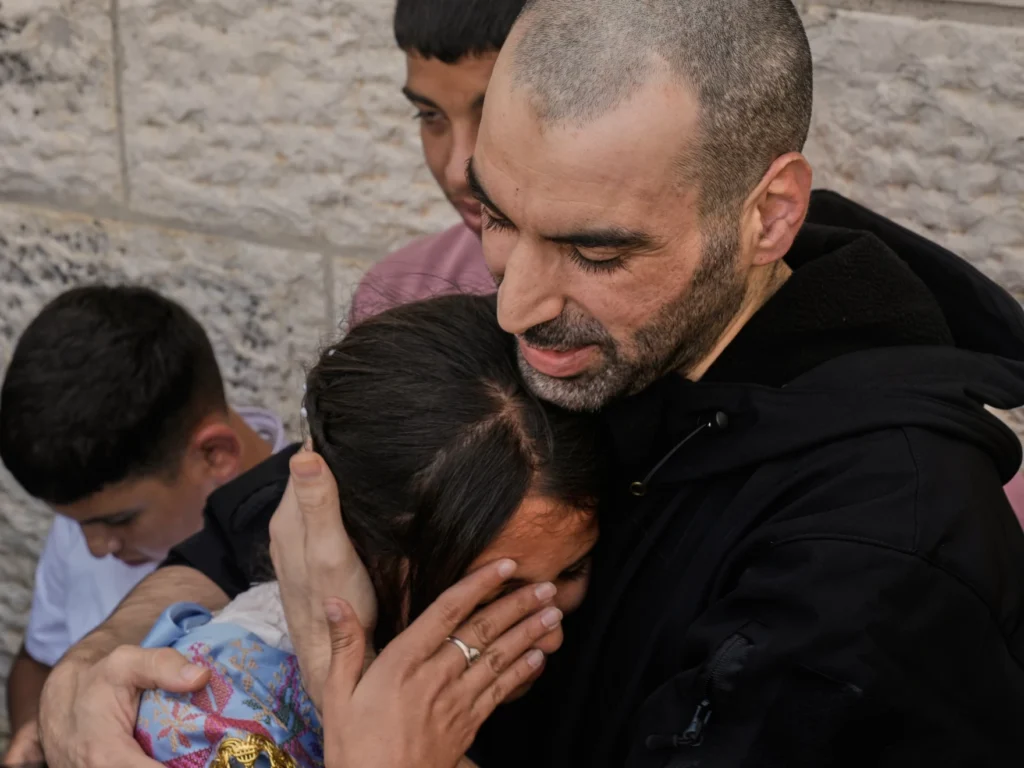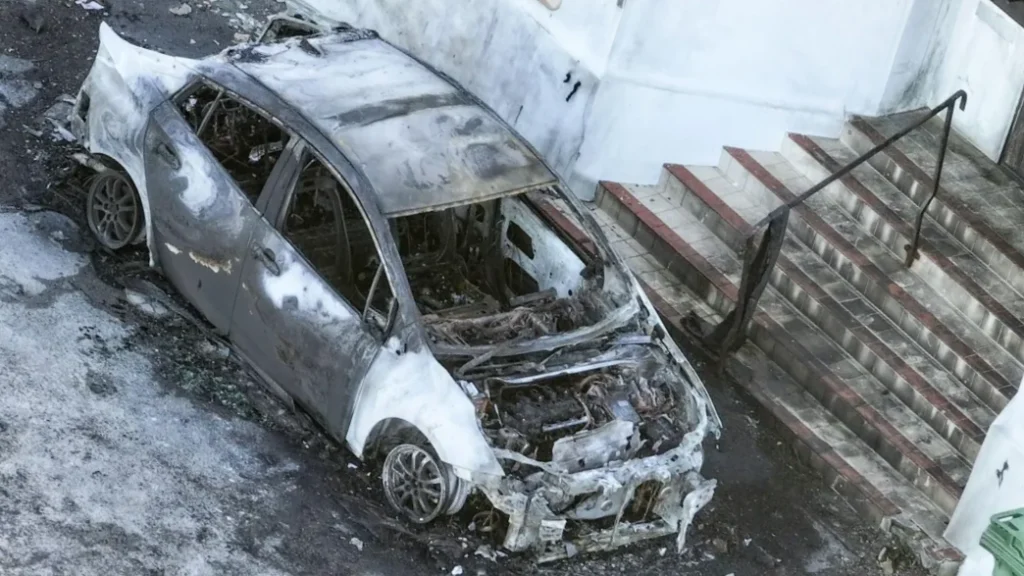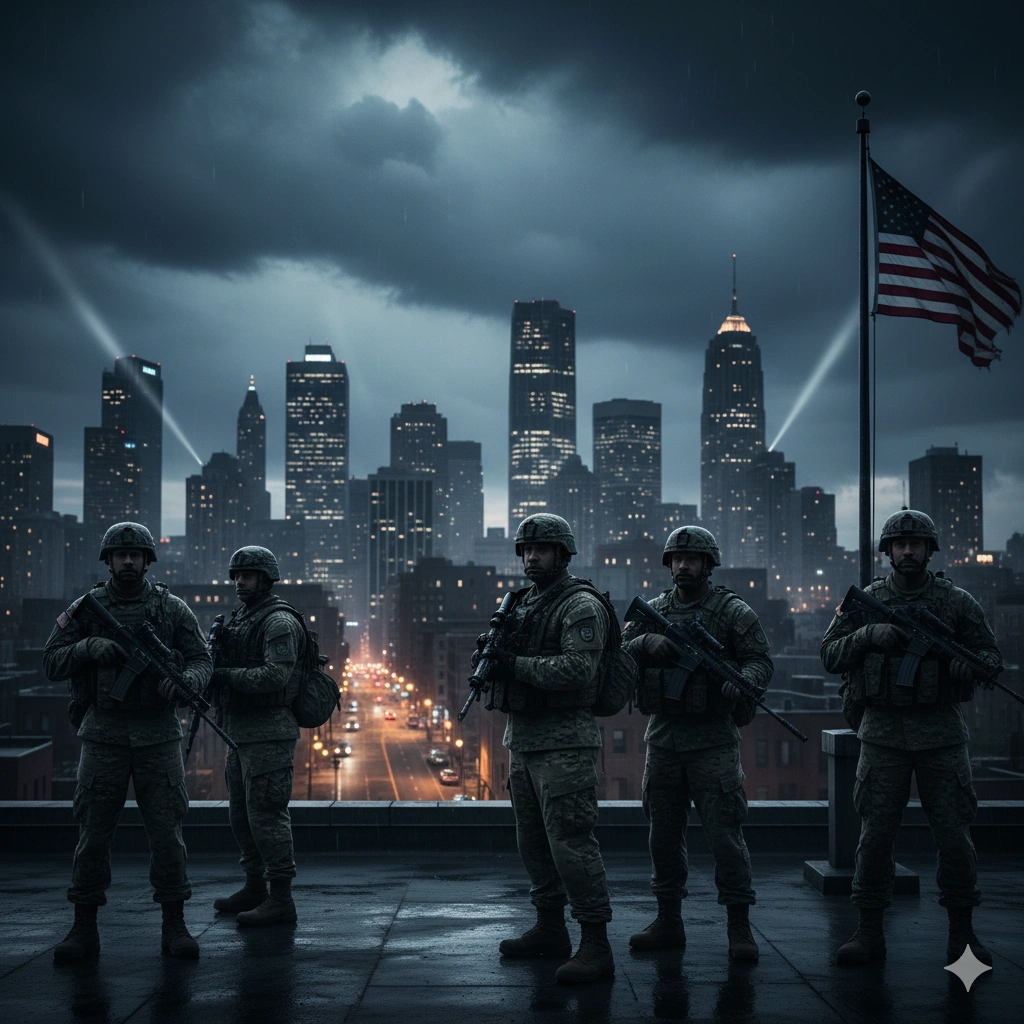Two men reported missing as coast search Ongoing at Sea

Two men reported missing off the Devon coast after an incident between distressed swimmers was reported to the police. It was Devon and Cornwall Police at 10.25 flanker that received the emergency call from Budleigh Salterton beach. Authorities were in action quickly after reports of concerns about swimmers in distress were made. Rescue teams were sent immediately to the scene to assist the people in the water, whose quick response helped to mitigate further risk. But several swimmers made it safely to shore. They were checked on the spot by paramedics, and some of them were taken to the hospital as a precautionary measure. Simultaneously, search operations for the two missing men were also going on, with rescue teams closely coordinating about what to cover in the coastal area. Police said they have spoken with the next of kin of one of the men who is missing, and are still trying to contact the family of the second man. What’s more, the officers also informed one of the locals about the ongoing situation and thus made sure that one of the people close to the missing men is also informed. Authorities advised beachgoers to be vigilant while around the water, and stressed the need for following safety warnings and the instructions of lifeguards. The local community showed its concern and gave support to the affected families. Volunteers helped where they could to help with the rescue effort. Emergency services also stressed the importance of reporting to them about swimmers in trouble and that prompt reporting of the incident can save lives, so a person should immediately report it. In response, the Coast Guard and police organised search patterns along the coastline using boats and observation points to find the missing men expeditiously. Finally, the authorities also praised the brave actions of first responders and civilians; in combination, their actions helped to stop any more casualties in this serious incident. Police are still investigating the circumstances and will keep people updated as they are able to provide further information. The police confirmed that a large number of emergency personnel responded quickly to the coastal incident. They urged the public to stay out of the water for safety reasons. Meanwhile, the Maritime and Coastguard Agency deployed Exmouth and Beer Coastguard Rescue teams to assist. RNLI lifeboats from Exmouth and Torbay also joined the operation. Additionally, coastguard search and rescue helicopters monitored the area from above. Police and ambulance crews worked alongside them to manage the situation efficiently. Authorities repeatedly reminded the public not to enter the water along this dangerous stretch of coast. Safety remains their top priority. Earlier on Christmas Day, police warned residents not to join the Exmouth Christmas swim while emergency teams attended the Budleigh Salterton incident. In response, some local swim organisers postponed or cancelled Christmas and Boxing Day events. They acted after the government issued a yellow weather warning for high winds. The RNLI emphasised that strong winds and cold water create serious risks for swimmers. They encouraged everyone to follow safety instructions closely. Furthermore, police praised the quick coordination between coastguard teams, lifeboat crews, and emergency services. Their swift action prevented potential accidents. Residents and visitors should stay alert and avoid coastal waters during ongoing emergency operations. Officials continue to monitor conditions carefully. Finally, authorities urge people to enjoy festive events safely on land. They reminded everyone that public safety comes before any recreational activity. ‘Roughest’ sea Tahsiens World journalist Phillip Stoneman has been to Budleigh Swim a number of times, and on each occasion, he looks forward to the vigorous spirit and enthusiasm that Budleigh brings. This year, he immediately noticed that the sea was rougher than usual. He remarked, “As soon as we arrived, it was obvious that the waves required extra care from all who took up entry.” Clearly, swimmers needed careful preparation in order to enter the water. Moreover, the large waving motions posed some challenges to some participants. Phillip added, “The waves swept some people clean off their feet, and other swimmers immediately came to their aid.” The community spirit shone as people were on hand to help each other in the turbulent water. In addition, an RNLI boat was patrolling the water throughout the swim. Meanwhile, hundreds of spectators were either enjoying the beach or cheering on the swimmers from the beach. This amalgamation of safety and rock n’roll did devil an air of hype. Overall, Phillip described Budleigh Swim as a “terrifyingly exciting” and challenging experience. Furthermore, he stressed how the occasion made the local and the visitor come together for a seaside celebration.
Arkansas Powerball Winner Hits $1.8 Billion Jackpot on Christmas Eve

The Powerball jackpot in Arkansas reached the record for the biggest payout of $1,817 million in a drawing held on Christmas Eve. For this reason, the prize is the second-highest lottery award in recorded history. Additionally, one ticket matched all six of the winning Powerball numbers that evening. The winning numbers were 4, 25, 31, 52, 59, and the red Powerball number was 19. Accordingly, the winner was given the option of either receiving a lump transverse cash payment or a series of annuity payments. The option with a lump sum of cash is worth $834.9 million before taxes. Importantly, this is only the second Powerball jackpot winner to come from Arkansas to date. During this time, it was disclosed that the lottery operator had kept the information of the winner private. But the headline million-million megamoney-maker remains at $2.04 billion in terms of single-ticket winning lotteries. A California resident living in Altadena managed to hit that historic jackpot in 2022. To win the Powerball, the participants need to match five white balls and the red Powerball. Further, every Powerball ticket card costs $2 if you buy from authorized retailers. At the same time, players face one-in-292.2-million odds. Consequently, jackpot wins are extremely uncommon, even though a great number of people take part throughout the United States. Winners are offered an option of a lump sum payment or a long-term annuity payment. In practice, most of the winners go with the immediate cash payout. The Powerball lottery was launched in 1992 and quickly became popular at the national level. Currently, the participants participate in 45 states and Washington, D.C. In addition to this, participants also participate in games given in Puerto Rico and the United States Virgin Islands. Upon claiming the victory, the participants are subject to 24 to 37 percent federal taxes. In many cases, winners are also subject to further state taxes. After all, the Arkansas Powerball jackpot is a perfect example of large prizes in combination with really long odds.
Aquaphor Repairing Foot Masks Review: Say Goodbye to Dry, Cracked Feet

The Ultimate Aquaphor Repairing Foot Mask Review: Say Goodbye to Cracked Heels Forever If you’ve ever felt the embarrassment of “sandpaper feet” snagging on your bedsheets or felt hesitant to break out your favorite sandals because of cracked heels, you aren’t alone. Foot care is often the most neglected part of our beauty routines—until it becomes a painful or aesthetic problem. Enter the Aquaphor Repairing Foot Masks. Known for their legendary “Advanced Therapy” healing ointment, Aquaphor has condensed their skin-saving magic into a convenient, 10-minute wearable sock. But does it actually live up to the hype? In this 1,200-word deep dive, we’re going to look at the ingredients, the user experience, the science of hydration, and whether this 6-pack is truly the best value for your self-care budget. 1. Why Our Feet Get So Dry (The Science of the Sole) Before we talk about the mask, we have to understand the “enemy.” The skin on our feet is significantly thicker than the skin on the rest of our bodies. It lacks oil glands, meaning it relies entirely on sweat glands for moisture. Between constant friction, weight-bearing pressure, and exposure to dry air, the skin barrier often breaks down. This leads to fissures (cracks) that can become painful. Standard lotions often sit on top of this thick skin without penetrating. This is why an “occlusive” treatment—like a foot mask—is a game changer. 2. Unboxing the Aquaphor Repairing Foot Masks The packaging is classic Aquaphor: clean, clinical, and trustworthy. This specific box contains 6 pairs of single-use socks, totaling 4.2 fl. oz. of product. Each mask comes as a plastic-lined “bootie” infused with a rich, creamy serum. Unlike “peeling” masks that use harsh acids to shed skin over a week, these are repair masks. They are designed for immediate hydration and barrier repair without the messy “shedding” phase. 3. Key Ingredients: The Triple Threat What makes this formula “Advanced Therapy”? It boils down to three heavy-hitters: Hypoallergenic & Clean For those with eczema or sensitive skin, the fact that these are paraben-free and fragrance-free is vital. Many foot masks use heavy perfumes that can sting open cracks; Aquaphor keeps it medical-grade and gentle. 4. The Human Experience: 10 Minutes of Zen Let’s talk about the actual “vibe” of using these. We’ve all tried DIY foot treatments where you slather on Vaseline and put on old gym socks—it’s greasy, messy, and you’re basically a prisoner on your couch for three hours. The Application: The socks are easy to slip on. They feature a secure adhesive tab at the ankle. This is a small but crucial detail—it keeps the serum locked inside and prevents the sock from sliding off if you need to walk to the kitchen for a glass of water. The Sensation: Initially, it feels cool and wet (as expected). But within minutes, you can feel the skin “drinking” the formula. Unlike some masks that feel slimy, the Aquaphor serum feels substantial and protective. The Time Factor: The packaging claims 10 minutes. In a world where “self-care” often feels like another chore on the to-do list, a 10-minute commitment is achievable. You can put these on during a commercial break or while scrolling through your morning emails. 5. SEO Optimization: What You Need to Know If you are searching for the best foot mask for dry skin, you’ll notice that most products fall into two categories: Peeling vs. Moisturizing. If your goal is immediate relief for an event (like a wedding or a beach trip tomorrow), the Aquaphor mask is the superior choice. You don’t want your feet peeling like a snake for 7 days; you want them plump, hydrated, and glowing right now. 6. Real-World Results: Does it Work? I tested these after a week of hiking and constant boot-wearing. My heels were white, chalky, and rough to the touch. 7. Comparison: Aquaphor vs. The Competition Feature Aquaphor Foot Mask Boutique Peeling Masks Standard Foot Cream Treatment Time 10 Minutes 60-90 Minutes 1 Minute Visible Results Immediate 5-7 Days later Temporary Sensitivity High (Fragrance-free) Low (Acid-based) Varies Mess Factor Low (Internal seal) High Medium 8. Tips for Maximum Efficacy (The “Pro” Method) To get the absolute most out of your 6-pack, follow these steps: 9. Is it Worth the Price? When you break down the cost of a 6-pack, you are paying significantly less per treatment than you would for a professional pedicure or even most single-use masks at a luxury beauty store. Given that Aquaphor is a dermatologist-recommended brand, you’re paying for efficacy, not just pretty packaging. For athletes, nurses, teachers, or anyone who spends 8+ hours on their feet, this isn’t just a beauty product—it’s recovery equipment. 10. Final Thoughts: The Verdict The Aquaphor Repairing Foot Mask is a rare product that actually delivers on its promises. It is: If you want to transform your feet from “rough and neglected” to “soft and healthy” without the mess of traditional ointments, this is the gold standard. Final Rating: ⭐⭐⭐⭐⭐ (5/5)
Trail Hunting Ban in Bold New Animal Welfare Plan

Trail hunting Ban in England and Wales is under the government’s new animal welfare strategy. The announcement will come on Monday. In this activity, hunters lay an animal-based scent trail for dogs instead of pursuing a real animal. Then, riders follow the pack on horseback. Despite appearances, no animals face direct harm during these events. The practice has stayed legal since the 2004 hunting ban because it does not involve killing animals explicitly. However, the government now plans to close this loophole. Officials say they aim to fulfill a manifesto promise and stop a practice sometimes used as a “smokescreen” for illegal hunting. Moreover, they argue that the ban strengthens animal protection laws. On the other hand, hunting and countryside groups warn that the ban may harm rural communities. They claim the government’s move could affect local jobs and traditional countryside practices. Overall, the decision sparks debate between animal welfare advocates and rural stakeholders. Nevertheless, the government emphasizes public safety and ethical hunting practices. The government has confirmed it will move forward with banning trail hunting across England and Wales. Meanwhile, trail hunting supporters insist the sport remains vital to rural life and local economies. Hunting with hounds has been a traditional activity in parts of the UK for centuries. However, the 2004 Hunting Act already placed strict restrictions on this practice. Specifically, the act prohibits using dogs to hunt wild mammals, including foxes, hares, deer, and mink. Trail hunting allows hounds to follow a scent trail, usually a rag soaked in animal scent. This method aims to replicate traditional hunting without harming wildlife. Recently, the League Against Cruel Sports reported nearly 1,600 hunting-related incidents last season. Among them, 397 involved foxes being chased. However, Countryside Alliance CEO Tim Bonner criticized renewed government attention on trail hunting. He called it “completely unnecessary” and a waste of parliamentary time. Bonner argued that the issue was settled 20 years ago, yet political parties continue to revisit it unnecessarily. He also highlighted Labour’s strained relationship with rural voters. Many rural residents feel the party ignores their communities while targeting traditional activities. The British Hound Sports Association (BHSA) previously emphasized trail hunting. They said it supports both rural economies and participants’ mental and physical well-being. One farmer told the TahsiensWorld that rejecting hunting publicly could lead to social shunning. They argued that banning trail hunting reinforces the belief that urban values override rural life. Ministers plan to consult the public on the ban in the new year. Baroness Hayman stated the government intends to follow through on its manifesto promise. She added that some trail hunting events might disguise illegal hunting of wild animals. Therefore, the ban aims to protect wildlife and enforce ethical practices. Conservative chairman Kevin Hollinrake criticized the plan, calling it an “attack on rural Britain and British culture.” Similarly, Nigel Farage labeled Labour as “authoritarian control freaks.” Currently, trail hunting is already banned in Scotland, while hunting with dogs remains legal in Northern Ireland. The government’s consultation will determine the final steps.
Watchdog Finds No Evidence Reform destitute Electoral Law

The Electoral Commission found no credible evidence of electoral law offences linked to Nigel Farage’s election expenses. Therefore, the watchdog confirmed it will take no further action on the matter. Moreover, the commission shared this decision in a letter sent to Reform UK’s treasurer. TahsiensWorld later obtained and reported the letter to the public. However, the case followed claims from a former campaign team member about overspending. The former aide alleged Reform UK exceeded the legal spending limit of £20,660. Meanwhile, Essex Police also declined an investigation due to the elapsed time. Earlier, police officials said more than one year had passed since the alleged offence. Firstly, Nigel Farage will not face a police investigation over alleged election spending issues in Clacton. Authorities reviewed the case and found no legal grounds to continue. Meanwhile, Peter Harris, Farage’s Clacton election agent, dismissed the complaint as politically motivated. He stressed that the campaign followed all required rules. Moreover, Harris said the team respected every regulation and left no room for further allegations. He added that repeated claims lacked factual support. In addition, the Electoral Commission confirmed it found no missing or undeclared campaign expenses. The review covered Farage’s Clacton constituency campaign in detail. Furthermore, the commission stated it found no credible evidence suggesting any breach of electoral law. As a result, officials decided to end their review. Therefore, the commission confirmed it would take no further action after initial checks. This decision effectively closed the matter. However, former Reform campaigner Richard Everett originally raised the allegations against Farage and the party. He claimed the campaign failed to declare several local expenses. Specifically, Everett mentioned leaflets, banners, utility bills, and bar refurbishment costs. He argued these expenses should have appeared in official records. Subsequently, officials sent the documents to the Metropolitan Police, who then forwarded them to Essex Police. Essex Police later reviewed the timing of the complaint. Importantly, an Essex Police spokeswoman explained that the law requires prosecutions within one year. She confirmed the July 2024 allegation arrived too late for action. Finally, Farage became leader of Reform UK in June 2024, shortly before the general election. He then won the Clacton seat with a majority exceeding 8,000 votes.
Palestinians Celebrate Release of Prisoners by Israel

BEITUNIA, West Bank — Loud cheers filled the air on Monday as Israel released nearly 2,000 Palestinian prisoners after a Gaza ceasefire deal. The agreement included an exchange in which Hamas freed several Israeli hostages, marking a major moment in the region’s ongoing conflict. Excited crowds gathered in Beitunia in the Israeli-occupied West Bank and in Khan Younis in Gaza to welcome the released prisoners. People waved flags and flashed V-for-victory signs while the freed men and women stepped off buses from the International Committee of the Red Cross. In Beitunia, supporters wrapped the returnees in traditional keffiyeh scarves to celebrate their national pride. Many lifted the prisoners onto their shoulders, while others simply sat down in relief, visibly drained from their ordeal. Kamal Abu Shanab, a 51-year-old Fatah member from Tulkarem, described the painful experience of imprisonment. He said the years behind bars brought endless hunger, harsh treatment, and deep emotional scars. “It was an indescribable journey of suffering — filled with oppression, torture, and endless struggle,” he shared, his voice heavy with emotion. As families reunited, the atmosphere blended joy, exhaustion, and hope. The prisoner release, part of the Gaza truce, brought a rare moment of unity for many Palestinians who continue to dream of freedom and peace. His face looked gaunt and tired. He said he lost 139 pounds (59 kilograms) while in prison. “We don’t even recognize him anymore. He’s not the person we once knew. Our uncle doesn’t look like our uncle,” said his niece, Farah Abu Shanab. Her words reflected the shock and sadness his family felt after seeing him again. The recent releases included about 1,700 Palestinians. Israeli troops had taken them from Gaza during the 2-year war and held them without charge. Their families waited anxiously for their return, hoping for justice and peace. In addition, Israel freed 250 Palestinians who had received prison sentences. Most of them faced convictions for deadly attacks on Israelis many years ago, while others served time for lesser crimes, according to Israel’s Justice Ministry. Out of these, Israel exiled 154 individuals and sent them to neighboring Egypt. Officials in Egypt said they would later transfer them to third countries. Meanwhile, the remaining freed individuals returned to their homes in East Jerusalem, the West Bank, and Gaza. Their families welcomed them with tears, prayers, and hope for a better future. A special moment The releases hit everyone hard. Israelis feel pain and anger—some of the released men once killed civilians and soldiers. Palestinians feel a mix of relief, joy, and pride. Almost every family knows someone locked up by Israel, usually a young man. For Israelis, these men represent terror. For Palestinians, they represent courage. They see them as people who refused to give in to decades of occupation. Families remember the long nights worrying about them. Friends remember the fear, the uncertainty, the constant hope that they would come home. In Khan Younis, the streets overflowed with life. People hugged, laughed, cried, and even fired guns into the air. The freed men walked out in gray jumpsuits, exhausted but alive. Families rushed to guide them to hospitals, to check their bodies, to make sure they were okay. At the same time, soldiers still raid homes, shelters, and checkpoints. Families run from town to town, searching for safety while fear chases them. Pain, anger, and grief sit heavy in every street. And yet, in the midst of it all, hope flickers—small, stubborn, and alive. A Palestinian prisoner makes the victory sign after being released from an Israeli prison as part of a ceasefire deal between Israel and Hamas, upon his arrival in the West Bank city of Ramallah on Monday. Many families had no idea their relatives faced detention. Moreover, it often took months to confirm if Israel held them. Sometimes, families never received confirmation at all. Initially, Israel passed laws at the start of the war. These laws allowed authorities to hold Palestinians for months as “unlawful combatants” without judicial review or lawyer access. Consequently, detainees often faced legal uncertainty and emotional distress. Human rights organizations, the U.N., and former detainees report frequent abuse in detention centers. For example, beatings, poor food, and harsh conditions occur routinely. In addition, advocates warn that these practices affect mental and physical health. Israel insists it follows prison standards under law. Furthermore, authorities claim they investigate every reported violation. Still, roughly 1,300 Palestinians from Gaza remain in Israeli custody, according to Hamoked’s September count. Alerts to avoid celebrating Irrespective of Israeli threats, there were celebrations throughout West Bank. The government had issued a flyer telling everybody who backed up the so-called terrorist groups risked being arrested. However, Palestinians kept on amassing. Groups of people spread the hills near Ofer Prison to make it clear that they supported it. Soon, an armored Israeli vehicle came in their direction and used tear gas and rubber bullets. People started to run as much as they could in all directions as the drones flew by. In the meantime, Israeli military declined to respond to questions of the reporters. Nevertheless, the eyewitnesses on the ground reported tense moments and increasing tension. The scenario underscores the fact that there are prolonged battles and tensions in the area. Who is included on the list? Hamas published a list of Gaza detainees who lately became liberated including two women, six teenagers under 18 years, and approximately 30 men over 60 years. All in all, there are 250 convicted prisoners that fall between the age of 19 and 64. They include 159 that are affiliated to the political party Fatah that is the governing party of the Palestinian Authority in the West Bank and 63 affiliated to Hamas. The other detainees are in the other groups, or do not belong to any political group. A large number of these people were apprehended throughout the first days of the 21 st century and that is the time the Second Intifada was undertaken as a Palestinian revolt due to the
Mosque Fire Sparks Hate Crime Investigation

A mosque in East Sussex was damaged by a suspected arson attack, which police are investigating as a hate crime. The surrounding community is stunned by the news. Firefighters raced to the mosque in Phyllis Avenue, Peacehaven, at about 9.50 pm on Saturday. Thankfully, nobody inside the building was injured. The attack still caused distress. The building was damaged near the mosque’s main entrance, and a car was parked nearby. Police released the information to keep the public informed. Detective Superintendent Karrie Bohanna said of the incident: “We recognise that an incident of this nature will cause fear in the community. She emphasised the psychological toll on the The police have increased their patrol The police have increased their patrol in and around the mosque, and are making more patrols to protect other places of worship in the county. In the meantime, the local population is vigilant. An anonymous volunteer at the mosque told the Tahsiens World that two people had tried to enter via the front door. They saw, however, that the door was locked and could not be opened. Then the persons emptied gallons over the door and close to one of the parked cars. The volunteer said that the car then caught fire. Two people escaped intact from the mosque. The volunteer emphasised the danger, adding, It might have been murder. The police are therefore conducting an ongoing investigation and are promising the community of their safety. The footage has not been verified by the Tahsiens World Safety at places of worship has become a top concern after the deadly Manchester synagogue attack on Thursday. Two Jewish worshippers died in the attack. Police named the attacker as 35-year-old Jihad Al-Shamie, a British citizen of Syrian descent. Officers shot him at the scene. Tariq Jung, chair of the Brighton and Hove Muslim Forum, said the community feels deep sadness and shock. Moreover, he stressed that no worshipper should fear violence while practising their faith. Therefore, he asked faith leaders and neighbours to come together and work for peace. Finally, he urged everyone to support one another during this difficult time. Community organisations now focus on places of worship’s safety and on building wider solidarity across the country. The mosque attack in Peacehaven shook our neighbourhood. Brighton and Hove Stand Up to Racism said the violence did not appear out of nowhere. Moreover, they report racist and fascist groups have stirred fear along the South Sussex coast for weeks. They have waved offensive flags, stuck hateful stickers, and sprayed racist slogans across local streets. Labour MP for Brighton Kemptown and Peacehaven Chris Ward, Labour MP for Brighton Kemptown and Peacehaven, called the attack “disgusting.” He said the fact that no one got hurt was by chance. Furthermore, Ward urged residents to stand with victims and to challenge hate wherever they see it. He also promised local leaders would work with communities to stop further attacks. Zoe Nicholson, leader of Lewes District Council, promised the council’s full support for Muslims in Peacehaven. She said, “Be in no doubt; we stand shoulder to shoulder with you.” In addition, Nicholson called on everyone to unite, protect neighbours, and reject hatred. Community groups, councillors, and neighbours are now working together to keep Peacehaven safe. They will challenge racism, offer practical support, and rebuild trust. Ultimately, they want a welcoming South Sussex where everyone belongs.
Trump Sends 300 National Guard Troops to Chicago

President Donald Trump approved sending 300 National Guard troops to Chicago to tackle rising crime concerns. He cited what he called out-of-control violence in the city. Earlier, immigration authorities clashed with protesters in the Democrat-led city. During the confrontation, they shot an armed woman after her group rammed law enforcement vehicles. State and local officials have criticized Trump’s deployment plan for weeks, calling it an abuse of presidential power. Illinois Governor JB Pritzker argued that Trump aimed to manufacture a crisis. Meanwhile, a federal judge in Portland, Oregon, temporarily blocked Trump’s plan to send 200 troops there. This ruling highlights growing tensions over federal troop deployments in liberal cities. Judge Karin Immergut pushed back against Donald Trump’s claims about Portland, saying his statements were “untethered to the facts.” She explained that his decision broke constitutional limits and ignored state authority. She also pointed out that sending the military into Oregon without the state’s approval threatened its independence. Even worse, her ruling noted that the move only made tensions in Portland grow stronger and led to more protests in the streets. Immergut warned that mixing civil authority with military force could blur the boundaries that protect democracy. She stressed that this kind of action puts the nation’s core values at risk. Right now, it’s still unclear if federal troops have reached Chicago. However, if they do, many expect an immediate legal fight. For that reason, Immergut urged leaders to respect both the Constitution and the will of the people before taking such steps. Chicago has become the latest city targeted for a controversial troop deployment, following Washington, Los Angeles, Memphis, and Portland. Many of these cities are led by Democratic officials, which has fueled political debate. Furthermore, the decision has sparked national attention due to its unusual nature. The deployments raise significant legal and constitutional questions. Normally, state governors control National Guard troops, and century-old laws restrict military involvement in domestic affairs. Therefore, critics argue that federal intervention could set a concerning precedent. Protests over immigration enforcement have surged across Chicago, particularly outside US Immigration and Customs Enforcement facilities. Additionally, these demonstrations have often turned tense, creating safety concerns for both citizens and law enforcement. White House spokeswoman Abigail Jackson emphasized the federal response. “Amidst ongoing violent riots, local leaders like [Gov] Pritzker have refused to act,” she said. “President Trump authorized 300 National Guardsmen to protect federal officers and assets. He will not ignore the lawlessness threatening American cities.” On Saturday, US Border Patrol officers in Chicago shot a woman after a group rammed vehicles into immigration enforcement cars, the Department of Homeland Security (DHS) confirmed. Authorities said the woman carried a weapon during the incident. According to DHS, she drove herself to a nearby hospital, but officials did not immediately disclose the extent of her injuries. Witnesses described a tense scene as officers responded quickly to protect public safety. Earlier this week, President Trump discussed his ongoing military deployments to US cities while addressing top military leaders. He emphasized the need to use American cities as “training grounds” for troops. He explained that this approach helps soldiers prepare to fight domestic threats and manage civil unrest more effectively. Additionally, the president encouraged military leaders to focus on readiness and rapid response in urban areas. “They’re extremely unsafe, and we will fix them one by one,” he said, referring to Democratic-led cities like Chicago. Moreover, he told military leaders that this effort would play a “major role for some people in this room.” For nearly a month, Trump has threatened to deploy troops to Chicago, pointing to rising crime rates and frequent shootings. In addition, he emphasized that immediate action remains critical to protect residents. Violent crime in Chicago has dropped significantly over the past two years. Specifically, between January and June, the homicide rate fell by one-third compared with the same period last year, according to the Council on Criminal Justice. However, Chicago’s overall crime levels still exceed the national average for many US cities. In fact, during the Labor Day holiday weekend last month, at least 58 people were shot, including eight fatalities. Consequently, city leaders continue to face immense pressure to improve public safety.
Shock in Gaza After Trump Backs Hamas Response to US Peace Plan

People in Gaza reacted with deep shock after US President Donald Trump welcomed Hamas’s response to his peace plan for the region. Many residents felt uncertain, confused, and emotional as news spread rapidly across social media platforms. Hundreds of Palestinians flooded my messages and social feeds, asking questions like, “Has the war ended?” and “Is this real?” The fast pace of political developments overnight left many struggling to understand what might happen next. Meanwhile, Hamas released a carefully worded statement that appeared to be influenced by mediators. Instead of rejecting the proposal, the movement gave a cautious “yes,” leaving many to wonder about the future. People in Gaza continue to process the unexpected turn of events while hoping for genuine peace and stability in their homeland. Hamas agreed to Donald Trump’s conditions for releasing Israeli hostages and supported his idea of placing Gaza under Palestinian technocrats. However, the group did not clearly respond to several other parts of Trump’s detailed 20-point peace proposal. Many Palestinians believe this move was a smart political step. They say Hamas aimed to shift pressure back onto Israel and make it responsible for the next decision. Moreover, this calculated approach allowed Hamas to appear open to dialogue while keeping control of its political stance. Shortly after Hamas shared its response, Donald Trump posted a statement on social media. He expressed confidence that Hamas was ready for peace. Furthermore, he urged Israel to immediately stop bombing Gaza and to consider negotiations seriously. Trump’s message reignited global discussions about peace in the Middle East. Yet, both sides now face the challenge of turning cautious words into real progress. Reactions among Palestinians in the region range from cautious hope to deep skepticism. Many residents feel uncertain about what lies ahead. Some fear Hamas may have fallen into a trap, believing Israel could retrieve its hostages and then quickly resume the war. However, others see a rare chance to finally end nearly two years of ongoing conflict and suffering. Still, many urge caution before celebrating. They remind everyone that peace never comes easily. “Do not get carried away by optimism,” one local leader said. “There will be many rounds of talks, and every detail matters. The real challenge always hides in the details.” He compared the situation to Lebanon, noting how, even today, people remain displaced and airstrikes continue. His warning echoes through many conversations, reminding everyone how fragile such moments can be. Meanwhile, Mahmoud Daher shared his thoughts on Facebook, saying Hamas’s latest response felt surprisingly direct and clear. His comment sparked further discussion and hope, even as uncertainty continues to shape daily life in the territory. He finally said yes without adding the usual “but” afterward. This time, his response carried a sense of certainty and intent. He agreed to release prisoners using Trump’s formula. He also agreed to end the war and allow a full withdrawal. Moreover, he accepted transferring power to a new Palestinian authority. The doubts, however, came later. Interestingly, Hamas even flattered Trump with praise to appeal to his ego. Still, many people remain unconvinced. In Gaza, activist and long-time Hamas critic Khalil Abu Shammala shared his concerns. He said the decision focused more on the movement’s survival than genuine peace. He added that Hamas might describe it as wisdom or putting people first. Yet, in his view, the truth points to Hamas trying to stay in control. Abu Shammala even questioned the origin of the statement. He believed Hamas did not write it because it sounded too sophisticated.
Tom Lehrer Death: Legendary Satirical Songwriter Dies at 97.

We lost a legend today. American satirist and musician Tom Lehrer has died. He was 97. This news, confirmed by US media, hits fans hard. Remember, Tom wasn’t just funny. He was a Harvard mathematician first! So, naturally, his songs had that brilliant, sharp edge. He saw the world differently. Back in the 50s and 60s, he wrote songs that made people howl. Yet, they were dark. And often, they cleverly skewered politics and society. You’d laugh, then gasp. His influence? Huge. Just ask modern greats like “Weird Al” Yankovic. Yankovic openly says Lehrer shaped his own musical comedy. Lehrer’s shadow is long. How do we know he’s gone? His friend, David Herder, told the New York Times. Herder shared the sad news directly. So, it’s heartbreakingly real. What’s left? A legacy of biting wit. Songs that dared to be smart and silly. Generations of comedians stand on his shoulders, grateful. We miss him already. Tom Lehrer first saw the world in Manhattan back in 1928. He trained rigorously as a classical pianist and mastered the instrument. Success certainly found him in music. Yet, interestingly, Lehrer’s heart pulled him powerfully toward the world of ideas and teaching for most of his life. Consequently, he chose to share his brilliant mind within academia’s ivy-covered halls. In fact, he brought his unique insights to students at Harvard University and the Massachusetts Institute of Technology (MIT). Furthermore, Lehrer also inspired young minds at the University of California. Therefore, while music gave him his start and undeniable talent, teaching truly defined Tom Lehrer. His remarkable journey wasn’t just notes on a page; it bridged the vibrant music scene and the intense world of university scholarship. Ultimately, he carved his own unique path, leaving a warm and lasting impression on both the concert stage and the classroom. Tom Lehrer graduated early from Connecticut’s Loomis Chaffee School, according to the New York Times. Next, he attended Harvard University, majoring in mathematics. Remarkably, he earned his bachelor’s degree there in 1946 at just age 18. Following this, Lehrer completed a Harvard master’s degree. He then pursued a PhD at Columbia University, but never finished it. Meanwhile, he began writing song lyrics at Harvard, initially just to entertain friends. Today, his most enduring song is likely “The Elements,” which cleverly lists chemical elements to a Gilbert and Sullivan tune. Another beloved fan favorite is “The Masochism Tango,” famously featuring lyrics about yearning for “the touch of your whips, dear.” Lehrer gained fame for his darkly comic ballads; notably, these include the necrophiliac epic “I Hold Your Hand in Mine.” Similarly, “I Got It From Agnes” comically described STD transmission. Furthermore, “Poisoning Pigeons in the Park” detailed feeding birds cyanide-coated peanuts. In 1953, he released his debut album, “Songs by Tom Lehrer,” sold primarily through the mail. Consequently, it became a huge word-of-mouth success, selling an estimated half million copies. Nevertheless, the BBC banned most songs from airplay the next year. Following this success, Lehrer started performing live in New York, Los Angeles, and San Francisco nightclubs. Additionally, he played at events for anti-war and left-wing groups. Later, he wrote songs for the US version of “That Was the Week That Was”; subsequently, these became a 1965 album. This album featured the highly controversial “Vatican Rag,” essentially mocking the Catholic Church in ragtime. Moreover, other songs condemned nuclear weapons; the most notable, “We Will All Go Together When We Go,” grimly joked about becoming “French-fried potatoes.” Later in his career, Lehrer wrote for the children’s show “The Electric Company.” Then in 1980, his songs enjoyed a revival when Cameron Mackintosh staged the “Tomfoolery” revue. Alongside music, Lehrer taught mathematics and musical theatre at the University of California from 1972 until 2001. In a landmark 2020 decision, he placed his songwriting copyrights into the public domain. Therefore, anyone can now perform, record, or interpret his work for free. He also relinquished all rights to his recordings. On his website, he stated clearly: “I no longer retain any rights to any of my songs… So help yourselves, and don’t send me any money.” Finally, he warned his website would shut down soon, but it remained live at the time of writing.
